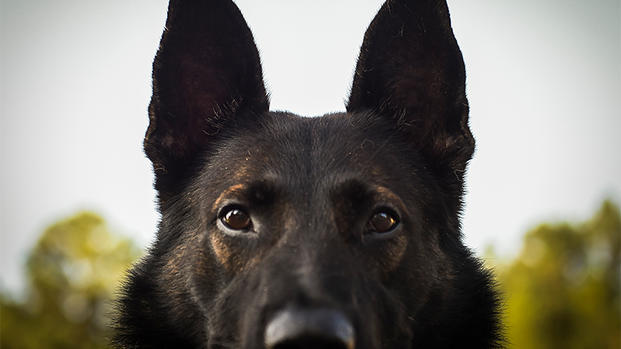Military life takes families all across the world, and one of the many differences, aside from a lack of readily-available sweet tea anywhere other than the south, are the climate extremes. For some, back-to-school weather means fall is finally here, and yet other places may not see the leaves change until early November.
When my husband was younger, the extreme Texas heat claimed the life of one of his dogs that was left outside to play during the day. School had already started, but the heat had yet to abate. People call it the dog days of summer, and it’s true; canines, as well as cats and other beloved pets, often bear the brunt of scorching weather. Years ago, those hot days turned tragic for my husband’s childhood pup.
He returned home from middle school one baking Texas afternoon to find that one of his two dogs had perished in the heat. The other had managed to escape the backyard and survive somehow, but my husband was heartbroken.
To help military families avoid the tragedy he experienced, here are four tips to help keep your pet safe during your PCS.
Watch the temperature in your new hometown. Getting to know a new duty station can mean getting exposed to new climates and weather patterns, too. And while an August or September afternoon is nothing to worry about in many parts of the country, a family newly settled in the South may be surprised to see how high temperatures climb, even in their own backyard. Even higher than normal humidity can limit animals’ ability to cool down.
Install a weather app on your phone and check it for heat waves that could threaten your animal. Local news should have updates on extreme weather. And pay attention to your pet, even in the fog of unpacking—a new environment can be stressful. Watch for signs of stress and heat stroke even if the heat index isn’t severe.
Be extra careful in the car. You’re moving -- you don’t need another thing to worry about. Or, you’re on vacation -- can’t you just relax? Sorry, but no. Anyone traveling or vacationing with pets this time of year needs to be vigilant -- never (never, never) leave animals in the car. Temperatures can quickly become deadly.
Keep pets comfortable in the car by feeding them an hour or more before travel, not moments before hitting the road. The movement of the car and nervousness about an unfamiliar situation can cause tummies to upset on a full stomach. Bring ice cubes so pets can stay hydrated without a sloshing water dish getting the floorboards all wet.
Keep them cool. Keep ice cubes in the water dish. Get pet fur trimmed short. Give them a hose bath if it gets too hot. Put pet beds somewhere cool and shaded, with plenty of air flow. Fans should not be a primary way to keep your pet cool, however. Because of the difference in the way animals and humans sweat, a fan breeze that keeps you cool may not help Fido much. And remember that hot pavement can burn sensitive paws.
Know the signs of heatstroke. Very old and very young animals are most at risk for heat stroke, along with animals who are overweight, out of shape, or in poor health. Some breeds are more susceptible to heatstroke, too, like dogs and cats with short muzzles, or specifically, Pugs, Boxers and Shih Tzus.
Signs of heatstroke include heavy panting, glazed eyes, a rapid heartbeat, trouble breathing, excessive thirst, lethargy, fever, dizziness, lack of coordination, profuse salivation, vomiting, discolored tongue, seizures, and unconsciousness.
If you think your pet may have heatstroke, get him or her into air conditioning, offer cool water, and apply cool packs. Find a veterinarian immediately.
So when you take a break from unpacking, make sure to check on your pet. No one knows your furbaby better than you do. As always, your pet’s best advocate is you.
Keep Up-to-Date for Your Next PCS
Get the inside information from those who know. Get PCS help and all the news and benefits information you need delivered straight to your inbox. Sign up for a free membership today.













